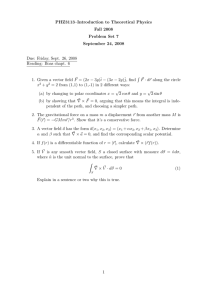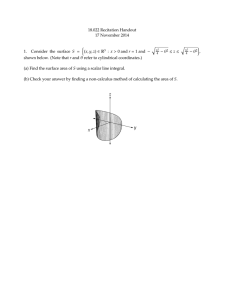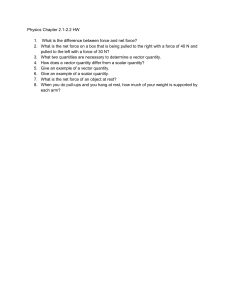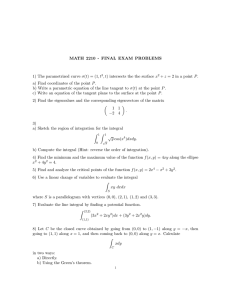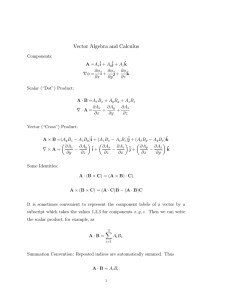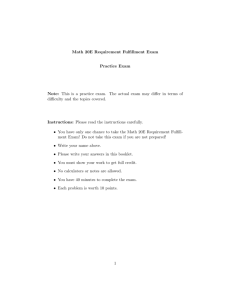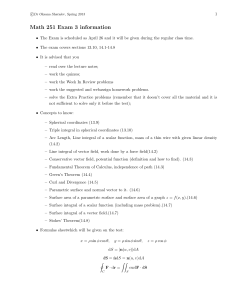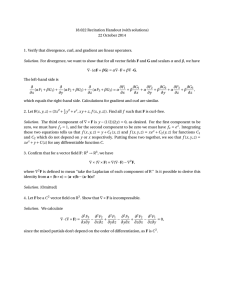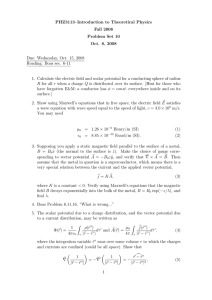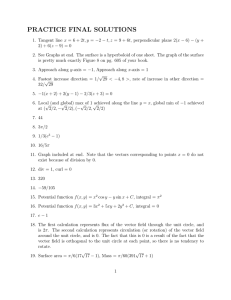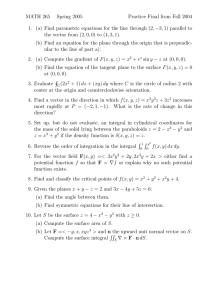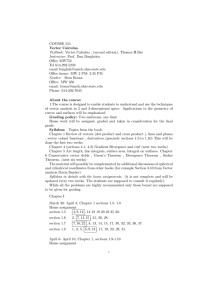PHZ3113–Introduction to Theoretical Physics Fall 2008 Problem Set 8 September 26, 2008
advertisement
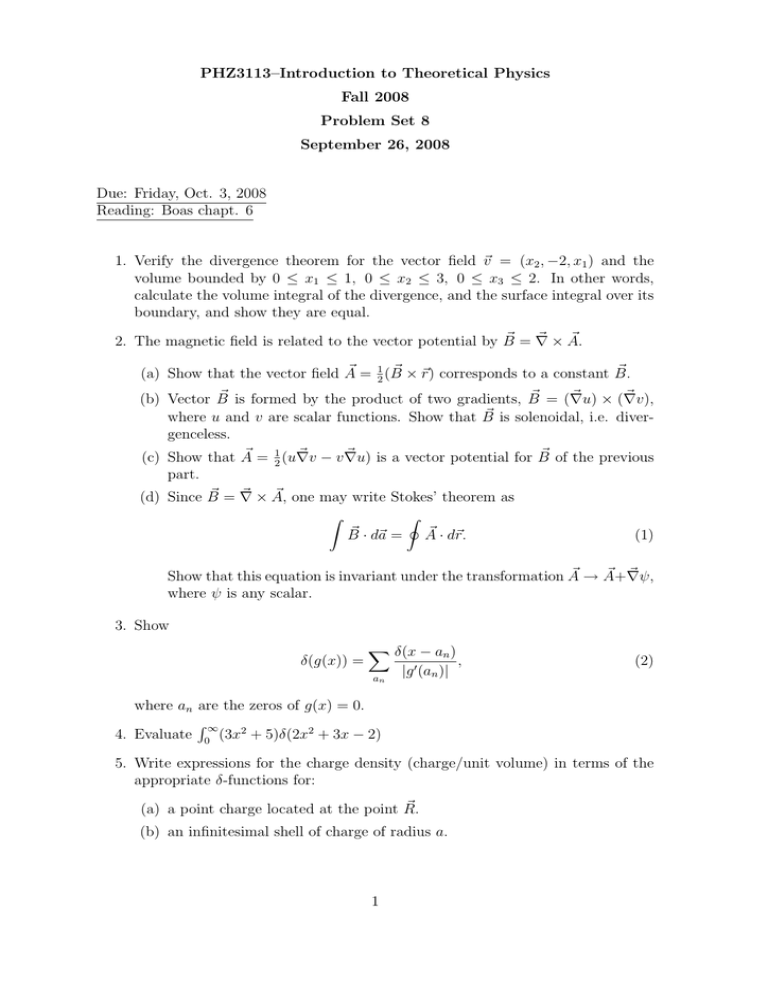
PHZ3113–Introduction to Theoretical Physics Fall 2008 Problem Set 8 September 26, 2008 Due: Friday, Oct. 3, 2008 Reading: Boas chapt. 6 1. Verify the divergence theorem for the vector field ~v = (x2 , −2, x1 ) and the volume bounded by 0 ≤ x1 ≤ 1, 0 ≤ x2 ≤ 3, 0 ≤ x3 ≤ 2. In other words, calculate the volume integral of the divergence, and the surface integral over its boundary, and show they are equal. ~ =∇ ~ × A. ~ 2. The magnetic field is related to the vector potential by B ~ × ~r) corresponds to a constant B. ~ ~ = 1 (B (a) Show that the vector field A 2 ~ is formed by the product of two gradients, B ~ = (∇u) ~ × (∇v), ~ (b) Vector B ~ is solenoidal, i.e. diverwhere u and v are scalar functions. Show that B genceless. ~ = 1 (u∇v ~ − v ∇u) ~ ~ of the previous (c) Show that A is a vector potential for B 2 part. ~ =∇ ~ × A, ~ one may write Stokes’ theorem as (d) Since B Z I ~ · d~a = B ~ · d~r. A (1) ~ → A+ ~ ∇ψ, ~ Show that this equation is invariant under the transformation A where ψ is any scalar. 3. Show δ(g(x)) = X δ(x − an ) an |g 0 (an )| , (2) where an are the zeros of g(x) = 0. R∞ 4. Evaluate 0 (3x2 + 5)δ(2x2 + 3x − 2) 5. Write expressions for the charge density (charge/unit volume) in terms of the appropriate δ-functions for: ~ (a) a point charge located at the point R. (b) an infinitesimal shell of charge of radius a. 1
